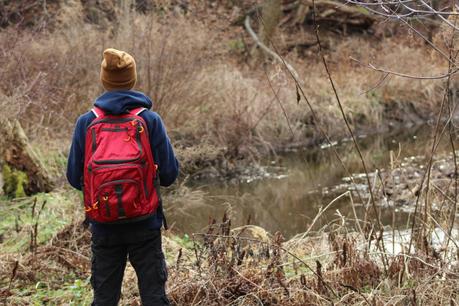
Last month, I found my son Micah's college essay. I was sorting through some papers in a desperate attempt to find a medical document. As often happens when you begin sorting, you find papers and letters from long ago and you end up lost in a past time and place.
Micah's essay focused on our first year in the United States. He was eight going on nine , a free-spirited active boy who had spent his entire life in Cairo, Egypt. The essay was a window into his memories, a window into the way his memories differed from mine. He talked about his first day at an American school, how he did not take his precious baseball hat off, because he didn't know that this was a sign of respect to the flag and the pledge. He wrote about being made fun of because he didn't know the Pledge of Allegiance. "I knew flags," he said "but I didn't know allegiance."
He described the contrast between his small, one-room school house in Cairo and the seemingly huge elementary school where he was the new kid. In reality, the school was small by American standards, but to Micah and his siblings, it was huge.
Mostly he wrote about the solace that he found in a pond in back of our house that year. We rented a ranch-style house, nothing special. It had four small bedrooms and a bright orange kitchen that the advertisement had described as "large and country." It sat just off a busy street in a small, New England town. A wooden jungle gym in the back was perfect for a family with five children. We were used to renting apartments in a large city - this house, while not large, had both the jungle gym and land in the back with a stream that widened into a small pond in the woods.
The year that we returned was chaotic and filled with transition and grief. After carefully preparing for months, everything that could go wrong did. We arrived in Massachusetts tired and wounded.
It was at the pond where adventure abounded and joy could not be squelched. "At the pond I could be anything I wanted to be." he said. "One day I could be a pirate sailing the Seven Seas, the next an explorer discovering a new land." Every day, whether rain or sun, whether cold or hot, my children played in and around that pond. It was a place that was safe from the do's and don'ts of adults, open to all the possibilities that a child needs to grow. The pond brought extraordinary comfort and escape from family and parental turmoil by providing room for imagination and adventure.
The expat parent and the third culture kid have vastly different memories of the same events. Children see events through the lens of childhood; they don't know everything that goes into a decision or a move. Parents decide what and how to communicate. Children are left with half the details and in their minds they fill in the rest of the story. They interpret events through the often limited details they know and it can be many years later that they understand the entire story. Children are excellent recorders of events, but not always reliable interpreters. In the words of my son, they "know flags, but they don't know allegiance."
Until I read the essay, I didn't realize the significance of the pond. I didn't know that this small body of water, secluded from the world of transition, was a place of imagination and solace. The year that my son looks back on as full of possibility, I remember as incredibly difficult. Unbeknownst to me, a pond and children were creating their own alternate memories that would serve them well through the years, well enough to make a difficult transition bearable. A pond became a balm and comfort, nature doing what it does so well - providing healing and fostering resilience.

